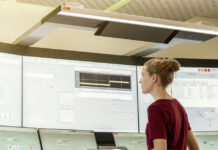South Africa has 13 tertiary education institutions in the 2019 Quacquarelli Symonds (QS) university rankings for the BRICS region.
Launched in 2013, the QS BRICS University Rankings is an annual ranking of the top universities in the five BRICS countries – Brazil, Russia, India, China and South Africa.
The ranking is compiled using eight different indicators, including the ratio of faculty to students, the proportion of academic staff with a PhD and the institution’s reputation among academics and employers.
The 2019 ranking is dominated by Chinese universities. Seven of the top 10 universities are based in China, with Tsinghua University retaining its number one spot. It’s closely followed by Peking University in second and Fudan University in third, both of which are non-movers.
Those institutions ranked in the top 10 and not located in China, include Lomonosov Moscow State University (6th), Indian Institute of Technology Bombay (8th), and Indian Institute of Science (10th). Russian based institutes, St Petersburg University, and Novosibirsk State University are 11th and 12th.
For South Africa, the charge is once again led by the University of Cape Town, which placed 22nd, followed by Wits, ranked 40th, and the University of Pretoria of third. All three universities rank well for academic and employer reputation. Fourth ranked Stellenbosch University, meanwhile also ranks well for employer reputation, and ‘papers per faculty’.
The University of Limpopo is a newcomer to the rankings. It was established on 1 January 2005, by the merger of the University of the North and the Medical University of South Africa.
| SA | University | Overall |
|---|---|---|
| 1 | University of Cape Town | 22 |
| 2 | University of the Witwatersrand | 40 |
| 3 | University of Pretoria | 45 |
| 4 | Stellenbosch University | 51 |
| 5 | University of Johannesburg | 61 |
| 6 | University of KwaZulu Natal | 85 |
| 7 | Rhodes University | 124 |
| 8 | University of the Western Cape | =139 |
| 9 | North West University | =170 |
| 10 | University of the Free State | 180 |
| 11 | Nelson Mandela University | 211-220 |
| 12 | University of Fort Hare | 281-290 |
| 13 | University of Limpopo | 351-400 |
The project, developed by QS in collaboration with Russian news agency Interfax, emerged from a desire to better highlight and track progress made by each of the five BRICS countries in the higher education field, and to facilitate comparison of universities in nations that share certain key socio-economic dynamics.
Of the eight indicators used to determine the rankings, some are the same as those used to create the overall QS World University Rankings, while others are included to reflect priorities and challenges that are more specific to universities in the BRICS countries, such as recruiting more highly qualified academic staff, the group said.
The indicators and weightings are as follows:
- Academic reputation – 30%
- Employer reputation – 20%
- Faculty/Student ratio – 20%
- Staff with PhD – 10%
- Papers per faculty – 10%
- Citations per paper – 5%
- Internal faculty – 2.5%
- International students – 2.5%















